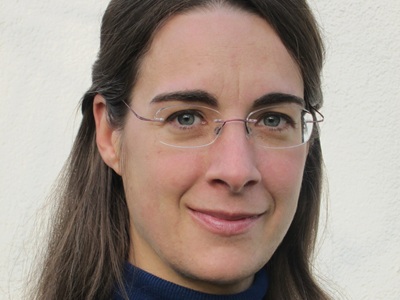Open AI must pay GEMA licence fee for ChatGPT
If Open AI wants to use song lyrics by German musicians to train ChatGPT, it must obtain a GEMA licence. This is the outcome of today's ruling by the Munich Regional Court. While the commercial impact for Open AI is likely to be manageable, the landmark judgement marks a significant setback for operators of generative AI.
11 November 2025 by Mathieu Klos
ChatGPT operator Open AI has suffered a defeat at the Munich Regional Court. The court largely upheld a lawsuit filed by GEMA and ruled that Open AI had infringed the copyrights of nine well-known German artists, including Inga Humpe and Herbert Grönemeyer, by using their song lyrics (case ID: 42 O 14139/24).
During the trial, it was undisputed that ChatGPT uses the artists’ lyrics for training purposes. The decisive factor in the oral hearing was whether this leads to memorisation and reproduction. GEMA argued this violated the artists’ rights.
The judges of the 42nd Civil Chamber have now agreed and ordered Open AI to cease and desist and pay damages. Presiding judge Elke Schwager and her colleagues justified this ruling by stating that “both the memorisation in the language models and the reproduction of the song lyrics in the chatbot’s outputs constitute an infringement of copyright exploitation rights. These are not covered by any restrictions, in particular the restriction on text and data mining.”
Landmark ruling
However, the ruling only applies to the older versions of Chat-GPT 4 and 4o. During the oral proceedings, there was disagreement between GEMA and Open AI as to whether newer versions of the chatbot also infringe copyrights.
The Munich judges also decided that the use of the lyrics as training data does not violate the artists’ general personal rights. GEMA had also complained about this. The judges rejected this claim because it did not result in “incorrect attribution of altered song lyrics”.

Elke Schwager
For the Civil Chamber, today marks one of its most significant rulings since its establishment in 2020. Elke Schwager presided over the case with judges Anna Mattes and Hahn assisting. The chamber regularly handles licence claims against major internet companies. In 2024, it ruled that video platform TikTok could not use copyrighted film sequences without payment.
German collecting society GEMA filed the case against OpenAI in November 2024, after ChatGPT demonstrably utilised their song lyrics without remuneration.
Ruling comes as no surprise
A favourable outcome for GEMA and its artists was already becoming apparent at the hearing on 29 September. Presiding judge Elke Schwager introduced the case for more than 60 minutes and made it clear that many fundamental questions of German copyright law were at stake.
The judges had considered key points of GEMA’s lawsuit to be valid, particularly regarding ChatGPT’s memorisation and reproduction of song lyrics written by eight different German artists.
No referal to the CJEU
Both parties had requested a referral to the CJEU due to the fundamental importance and many European legal issues involved. However, the Munich judges did not comply.
Open AI remains adamant and, in a statement, continued to call for clarification of important issues at European level. “This case raises new legal questions about how copyright law applies to modern AI technology. Given the importance and novelty of these issues, clarity at a European level could benefit artists, innovators, and policymakers alike,” the statement said.
Appeal likely
Open AI is also dissatisfied with the outcome of the first-instance proceedings. “We disagree with the ruling and are considering next steps. The decision is for a limited set of lyrics and does not impact the millions of people, businesses, and developers in Germany that use our technology every day,” said the ChatGPT operator. “We respect the rights of creators and content owners and are having productive conversations with many organisations around the world so that they can also benefit from the opportunities of this technology.”
This suggests that Open AI will appeal the ruling. However, the company has not yet made a decision on this. If the ruling is upheld, Open AI would probably have to accept a GEMA licence.
Raue and GEMA
GEMA relies on Berlin IP law firm Raue. The firm has a high profile in Germany for its media and publishing law expertise. Partner Robert Heine leads the case and regularly assists collecting societies such as Corint Media, Gesellschaft zur Verwertung von Leistungsschutzrechten (GVL) and VG Musikedition, alongside GEMA. Within the firm, Heine also leads on matters relating to the use of artificial intelligence in legal work. Media lawyers Felix Laurin Stang and Lisa Schopp support him.
GEMA’s head of legal, Kai Welp, also attended court today. With support from law firm Raue, GEMA has launched a second case against Suno AI, but the Munich Regional Court has not yet set a date for the hearing.
- Robert Heine
- Felix Laurin Stang
- Marcus Grosch
- Tina Liebscher
Open AI and Quinn Emanuel
OpenAI had not accept GEMA’s accusation and had called in the German team from Quinn Emanuel Urquhart & Sullivan. The litigation specialists led by lead partner Marcus Grosch, who usually litigates in patent disputes, had defended the US company fiercely in the September hearing.
In addition to Grosch, counsel Felix Trumpke, Tina Liebscher and Carsten Ritter, as well as Mario Urbiks, Nina Balta, Mark Weiand, and Johannes Blöcher are part of the team for OpenAI.



